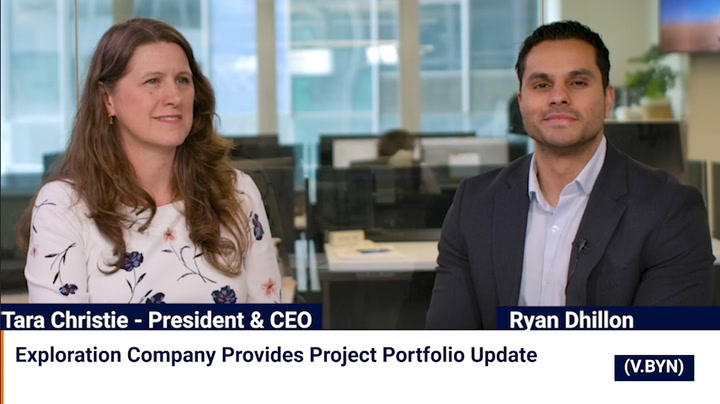The week in Canadian markets is ending with a sense of trepidation for stocks in the near term.
With inflation still on the rise – hitting 5.7 per cent in Canada and a whopping 7.9 per cent in the U.S. – firms are facing increased capital expenditures, delayed growth plans and the uncomfortable decision to increase prices to appease investors.
Dollarama recently announced a new C$5 selection to stay ahead of rising costs, while Netflix instituted a US$1.50 price hike for its middle subscription tier back in January, to name a few.
Global markets are also quick to react to geopolitical turmoil, with a bulk of investors giving into fears of irreparable losses and parking capital on the sidelines for relief. The effect here, as evidenced by Russia’s ongoing and unprovoked invasion of Ukraine, is a depression in valuations for many firms that is largely sentiment driven.
Excluding energy firms, whose recent volatility corresponds to tight oil supply, liquid large caps like Shopify, Brookfield Asset Management and the Big Six banks are likely to move with widespread international news, though their businesses aren’t directly tied to it. The same can be said for certain mid cap companies with sufficient brand equity.
When correlations go to 1 and investors adopt a herd mentality – as was also the case with COVID in February 2020, and the Great Financial Crisis in 2008 – it can feel like there’s nowhere to shelter capital from the carnage while keeping it invested at the appropriate risk level.
This is where small and micro cap stocks come in. Ever popular with our community of active investors, these emerging enterprises offer a number of potential benefits to portfolios concentrated in multinational companies with large investor bases keyed in to the latest in international affairs.
Illiquidity premium: Canadian small and micro cap stocks generally trade at wide spreads and low volumes, perhaps a few thousand shares per day, compared to the over 4M shares of Scotiabank that have already exchanged hands as of 9:58 am EST. This means that they’re more likely to sidestep broad-based market moves simply because few people are transacting in them. It also means that, on average, you can expect a higher return from these investments for having to wait on growth, greater investor interest and the ensuing increase in liquidity compared to larger firms whose stocks reflect fair value most of the time.
Analyst coverage: While Bay Street and Wall Street are ready to react to every update issued from Shopify headquarters, they aren’t spending much time considering burgeoning firms like this week’s top 5, whose size, stock performance and economic impact have yet to earn their trust. This lack of coverage can work out positively, such as when a less-than-satisfactory quarter goes relatively unnoticed, or a stock is delayed in adjusting to improving fundamentals, which increases the probability of an illiquidity premium.
Institutional ownership: One specific reason analysts avoid small and micro cap companies is that their institutional clients, like pensions, equity funds and investment banks, can’t affect their own performances by investing in them. If you manage tens of billions of dollars, owning even a majority of a C$100M firm will struggle to move the needle. If you manage tens or hundreds of thousands of dollars as a retail investor, though, you are at a considerable advantage if you can identify promising up-and-coming companies before they register on institutional radars.
While it’s important to note that emerging companies pose a generally higher risk of loss due to short cash runways, overreliance on debt or share issuance, and lack of market penetration, a shrewd analytical process coupled with controlled emotional biases can unlock the benefits of this asset class and help you meet your financial goals.
With this overarching framework in mind, let’s take a quick survey of stories in the consumer discretionary, mining, health care and energy spaces that have been garnering the most reader interest over the past week.
Odd Burger (TSXV:ODD) announces plans to open 36 new locations in Western Canada
Odd Burger has announced plans to open 36 new locations in Alberta and British Columbia.
The vegan fast-food restaurant and Sai-Ganesh Enterprises signed an agreement to roll out the restaurants over the next seven years.
Co-Founder and CEO James McInnes sat down with Shoran Devi to discuss the news.
Odd Burger (ODD) is up by 4.65 per cent over the past week trading at $0.45 per share as of 10:41 am EST.
X-Terra Resources (TSXV:XTT) provides update on the Grog Project
X-Terra Resources has shared details on its recent geochemical sampling program on the Grog Project in New Brunswick.
The company identified six gold–antimony–arsenic targets in the Grog area.
President and CEO Michael Ferreira spoke with Shoran Devi about the findings.
X-Terra Resources (XTT) is unchanged over the past week trading at $0.035 per share as of 11:00 am EST.
BioVaxys (CSE:BIOV) expands cancer vaccine platform
BioVaxys Technology has expanded its cancer vaccine platform with BVX-0922, its autologous haptenized tumor vaccine for colorectal cancer.
The company plans to advance an investigator-sponsored clinical trial application in the EU with the European Medicines Agency for the vaccine later this year.
Co-Founder and Chief Medical Officer Dr. David Berd sat down with Dave Jackson to discuss the expansion.
BioVaxys Technology (BIOV) is down by 12.5 per cent over the past week trading at $0.14 per share as of 10:39 am EST.
Monarch Mining (TSX:GBAR) hits high-grade gold on Swanson Project
Monarch has yielded up to 184.5 g/t gold over 1.5 m from its Swanson Project.
Based on the positive results, Monarch has doubled its drilling program to 10,000 m as it seeks to expand the limits of defined mineralized zones in all directions.
CEO Jean-Marc Lacoste joined Dave Jackson to comment on the results.
Monarch (GBAR) is down by 1.54 per cent over the past week trading at $0.64 per share as of 10:00 am EST.
Trillion Energy (CSE:TCF) closes private placement
Trillion Energy International has closed its previously announced, oversubscribed private placement for total gross proceeds of C$17,913,000.
The placement was increased from C$10,000,000 to C$17,913,000 due to high demand.
CEO Art Halleran sat down with Shoran Devi to discuss the financing.
Trillion Energy International (TCF) is up by 1.59 per cent over the past week trading at $0.32 per share as of 11:03 am EST.
Join us next Friday afternoon for a look at the week’s top trending stories on The Market Herald Canada.






